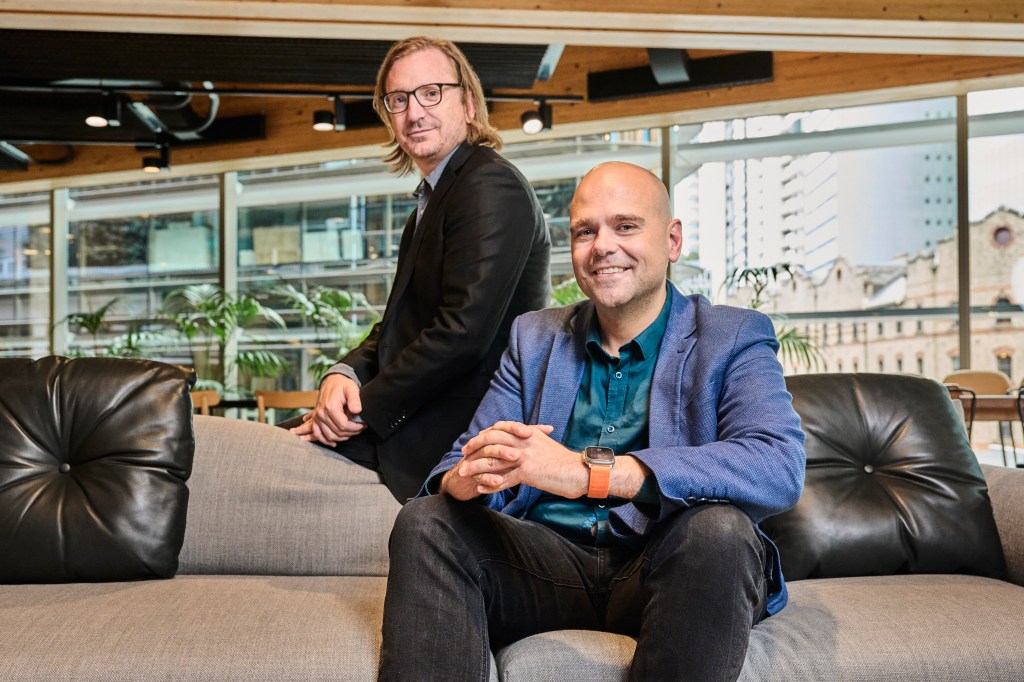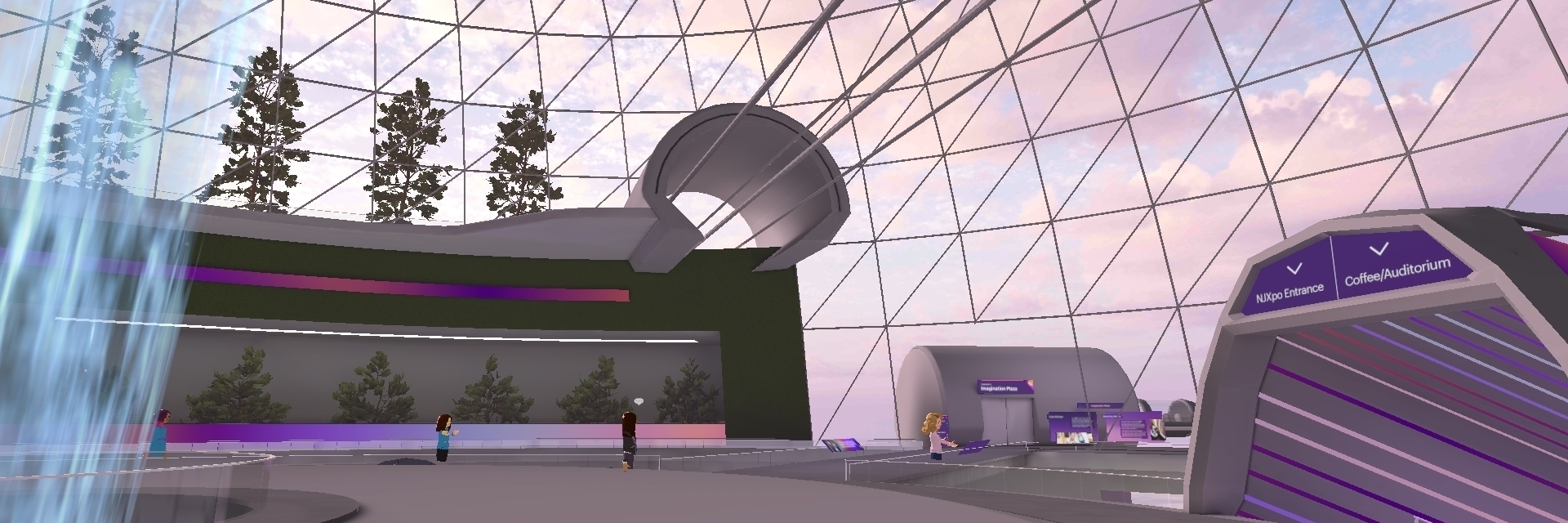The metaverse is here whether the world is ready for it or not. Tech leaders say timing is of the essence as companies decide what role the technology will play in their future.

The metaverse – or a shared virtual reality space – might sound to a like a far-off tech concept straight out of a science fiction film. However, in the real world, a growing number of businesses are already well and truly immersed in the technology as it transforms the online space.
The predicted level of impact the metaverse will have on the way we live and work cannot be underestimated. Last year global investment bank Goldman Sachs estimated that the metaverse could be an $US8 trillion ($11.59 trillion) market opportunity.
Research and advisory firm Gartner predicts that 30% of all organisation in the world will have products and services available on the metaverse by the year 2026. Furthermore, a quarter of all people will spend at least an hour a day in the metaverse for work, shopping, education, socialising and entertainment.
Global advisory firms, such as Accenture, say businesses must act now and have a metaverse strategy in order to be a part of the new landscape. Accenture describes the metaverse as a “continuum that spans the spectrum of digitally enhanced worlds, realities and business models”. But in its simplest form, Accenture Design & Innovation Practice Leader Behren Schulz describes the metaverse as “the reimaging of the internet”.
“The building blocks of the Metaverse Continuum are taking shape today, but will coalesce over the next decade to create an entirely new enterprise landscape,” Accenture wrote in its Technology Vision for 2022: Meet me in the Metaverse.

Dawid Naude, Accenture’s Metaverse Continuum Group Lead, says now is the time for businesses to seize the opportunity to be a part of the metaverse, in a controlled and strategic way.
“The opportunity is huge. It touches just about every part of a company. Every kind of company in every industry that we work with are curious and dipping their toes into different areas,” he says. “There are some that have already been doing this for decades. If you look at the aviation industry – flight simulation and virtual reality has been around for 20 or 30 years or so. But for some industries, this is new and exciting.”
Accenture’s own metaverse
Accenture is taking its own advice when it comes to embracing what the metaverse has to offer. The global company has a dedicated metaverse division, called the Metaverse Continuum Business Group and its own metaverse space, called Nth Floor which has various virtual campuses, such as One Accenture Park.
Accenture’s Nth Floor is used for everything from training and recruitment to meetings and hangouts, with 2,000 of its 6,500 Australian employees already trained in the VR space.
Accenture has a global partnership with tech company Meta and employees use Oculus Headsets and laptops to participate in the environment.
“We have taken it [the metaverse] so seriously that we have set up an entire business group around it,” Naude says. “My role is to bring everyone together in the one team. You need to creative people, the technology and 3D rendering…there’s the cloud infrastructure and data. It covers every part of the business really.”
In Accenture’s case, creating Nth Floor wasn’t about directly increasing revenue, but brining people together for more efficient training, recruitment and communication, Accenture’s Schulz says.
“In this instance we know we can train people faster and more efficiently – it’s not necessarily driving revenue – but it allows us to, in a period of uncertainty, push hundreds or thousands of people more quickly.
“Think of it when future employees are not only digital natives, but potentially metaverse natives. They might have simple skills to such as knowing how to use a cash register…so prior to even starting on the job they can start skilling themselves in those areas.”

Metaverse musings: what next for business?
Currently, most companies can be put into one of two categories when it comes to their thoughts about the metaverse, Naude says. There are those that want to start and want to know “how long until it pays for itself and what are the case studies to support it”. The second group see a “clear shift” and want to be a part of the metaverse future, he says.
While there are numerous benefits associated with the metaverse, Naude warns that tech strategies must consider the lack of regulation and risks associated with the new space. Seeking direction from tech experts and advisors is an important part of getting the strategy right, especially with new technology, he says.
“For companies it’s about where you want to start,” Naude says. “There aren’t industry standards and processes and protocols around these things. So [from] we’ve looked at…it’s a broad set of new challenges that we need to work through.”
Accenture’s Schulz says there are many ways businesses can be involved in the metaverse, which does not necessarily equate to “everyone walking around wearing VR headsets”.
“I think you need a strategy. Not necessarily be a player in it, but understand how this kind of technology is going to affect your business in the future. Have plan to either mitigate or explore that.
For example, a business in the defence industry may be developing a piece of technology that is not built yet, but it might want to train people how to use it, Schulz says. “It might take a year of training to get people ready, so by the time it is built, you’re ready to step onto that and actually operate as a team,” he says.
For everyday business operations, it won’t be long before employees enter a VR boardroom to attend a meeting, rather than a Teams meeting or flying to a different location to bring a team together, Schulz predicts.
Preserving nations: the digital twin of Tuvalu

Accenture has collaborated with the government of Tuvalu, to create a digital twin of the Polynesian island nation to preserve it for generations to come. Climate change has had a catastrophic impact on the nation, which is likely to be submerged by rising sea levels in a matter of decades.
So far a digital twin has been completed of one of Tuvalu’s islands, Te Afualiku, which is at most risk of submergence. The twin is an accurate, visually immersive VR experience of the real island, right down to the birds, trees and grains of sand.
Last year Tuvalu Foreign Minister, Simon Kofe, said in his speech from COP27 that the technology will help preserve the culture of the nation for future generations.
“As our land disappears we have no choice but to come the world’s first digital nation. Our land, our ocean, our culture are the most precious assets of our people. To keep them safe from harm, no matter what happens in the physical world, we will move them to the Cloud.
Piece by piece we will preserve our country, provide solace to our people and remind our children and grandchildren of what our home once was. Our digital nation will provide an online presence that will replace our physical presence and allow us to continue to function as a state,” Kofe said.
